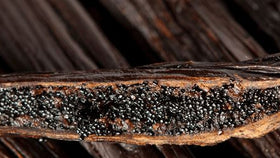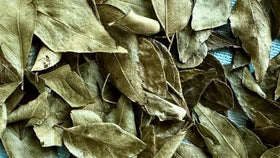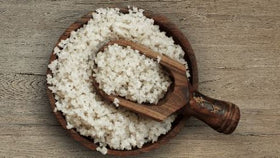- Vanilla
- Spices & Herbs
- Baking Decorations
- Mushrooms & Truffles
- Tools
- Blog
- My Account
-
USD($)
- USD($)
- USD - US Dollar
- CAD - Canadian Dollar
- GBP - British Pound
- AUD - Australian Dollar
- EUR - Euro
- Currency
-
en
- en
- en
- es
- fr
- Language
🎉 Hey, you have free shipping in the USA!
-
-
Vanilla
Vanilla
- Spices & Herbs
-
Baking Decorations
Baking Decorations
- Mushrooms & Truffles
- Tools
-
Blog
Blog
-
Vanilla
Vanilla Extract Ingredients, Recipes, and Tips
Kindi Lantz April 18, 2019
What Are The Main Ingredients in Vanilla Extract?
You’d be hard-pressed to find baked recipes that don’t use vanilla extract, but most varieties found in grocery stores aren’t actually made from real vanilla at all. As such, many people choose to make their own vanilla extract to avoid additives or they purchase pure vanilla extract from specialty stores or online. But what are those artificial vanilla extract ingredients cooks are trying to avoid and how do the ingredients in pure vanilla extract differ? Allow me to explain.
Basic Vanilla Extract Ingredients
Whether you are looking to purchase vanilla extract or make your own, pure vanilla will usually contain 2 ingredients—either alcohol or glycerine and vanilla beans (though, in some instances, sweeteners may also be included). Should you find yourself looking at the ingredients list and discover, artificial color, or lignin vanillin (a chemically-derived compound that merely mimics the true flavor of vanillin), you’ve found yourself an extract imposter. You know the one I’m referring to, imitation vanilla extract. As you probably already know, it is just that, an artificial version of the real thing!
There is but a single advantage to using imitation extract. Yes, it’s cheaper—oftentimes much cheaper. That is only when compared side-by-side between store-bought varieties, though. Make your own pure vanilla extract in bulk and you may actually save money (plus, homemade vanilla extract makes an incredible gift). Check out our 37-second instructional video for making homemade vanilla extract.
So now that you know what ingredients are required for vanilla extract, you have to make a few more decisions to make before you start your process.
What kind of beans should you use for making vanilla extract?
Gourmet Vanilla Beans
Gourmet vanilla, or grade A vanilla beans, are an exceptional choice for things like custards, cream sauces, cakes, and basically any item that doesn’t call for a long infusion process and needs the flavor to develop relatively quickly. Vanilla beans need to steep for months before an extract is ready, so gourmet beans really aren’t the best option. Sure, they can be used to create a phenomenal extract, but you would essentially be paying for a more expensive bean without getting any better of a result.
Shop gourmet vanilla beans here.
Extract Vanilla Beans
Extract beans, or grade B vanilla beans, come from the same plants as gourmet but have a much lower moisture content, about 10-15% less to be exact. They also tend to have slight imperfections in their appearance, none of which affect the vanillin content. Because they have less moisture, the flavor is actually more concentrated, so pound-for-pound, it will take less to create your extract than it would if you were using gourmet beans. However, should you have leftover gourmet vanilla pods from another recipe that called for the seeds, throw those into your extract for added flavor (all parts of the vanilla bean contain vanillin)!
Shop extract grade vanilla beans here.
“Grade C” Vanilla Beans
Technically, these beans don’t fall under any classification, but because they neither meet the grade A (gourmet) or the grade B( extraction) varieties, many people have taken to calling them grade C beans. We simply call them unclassified vanilla beans or short vanilla beans. As their name suggests, extract vanilla beans are the more commonly used bean for making an extract, but you may just find their unclassified counterpart to be the more economical option. It just might take more of them to create the same potency since they are often shorter.
Shop unclassified vanilla beans here.
For more information on the various types of vanilla beans, including origin and species, check out this informative post: How To Tell The Difference Between The Various Types of Vanilla Beans.
Should alcohol or vegetable glycerine be used when making vanilla extract?
Alcohol and vegetable glycerin are both used as carriers for the vanillin flavor in extract. Neither is necessarily better than the other. It’s all about preference. Alcohol is the more traditional carrying agent for vanilla extract but some people choose glycerin because they are avoiding alcohol for one reason or another. Others, however, stray from using glycerin because it slightly alters the flavor, adding a bit of natural sweetness. So, while it is a great choice for extract used in baked goods, you may want to stray from the glycerin variety for savory applications.
Should you choose to make vanilla extract with alcohol, any variety will work. Here’s a recipe that can use bourbon, rum, or vodka.
On the other hand, if after reading this post, you’ve realized that you really just don’t want to have to wait several months for a homemade extract, you can always purchase our premium quality, single-fold vanilla extract.
Share:
Also in Our Blog | Recipes, insight and food stories at Slofoodgroup

Understanding Vanilla, its History, Cultivation, and Top Growing Regions

Uses For Curry Leaves

What Is Grey Sea Salt?



Slofoodgroup
Author